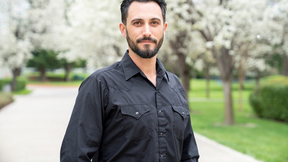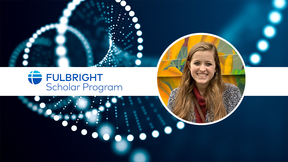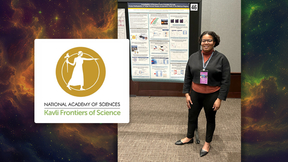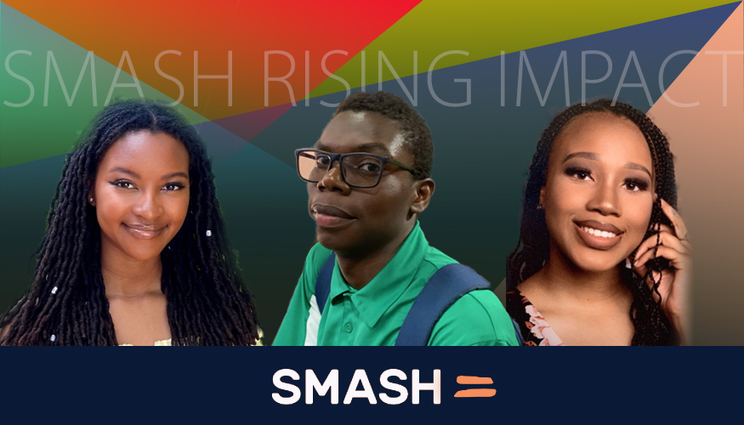Lab partners on SMASH internship program
This summer, Lawrence Livermore National Laboratory (LLNL) is partnering with the Livermore Lab Foundation (LLF) and an innovative program called SMASH, an organization with a mission to build a strong, diverse and socially conscious tech workforce by leveling the playing field through academic learning and experiential engagement for high school and college students.
SMASH aims to empower dedicated students of color with an intensive science, technology, engineering and math (STEM) education, culturally relevant coursework and access to resources and social capital that allow them to be successful in college and in their careers.
SMASH was launched on the University of California, Berkeley campus in 2004 as an initiative of the Kapor Center in response to the lack of diversity in tech. SMASH is a free, multi-year STEM-intensive program that takes a long-term and holistic approach to developing first generation college students who will not only thrive in STEM careers but use their skills to effectuate change in their communities.
LLNL and LLF are piloting a partnership program with the SMASH Rising area of the program, which focuses on placing alumni of the SMASH high-school programs into the workforce pipeline.
This summer, three SMASH Rising scholars are participating in the Laboratory's internship program, working on projects focused on computer science in the Computing, Global Security and Physical and Life Sciences directorates.
Ouyanatu Maina is a rising sophomore at Amherst College. She is planning to major in math and computer science. This summer she is working on creating database components that manage images of various nuclear samples as part of Arcana, the National Nuclear Materials Archive Database, with mentor Naomi Marks. She also is working on a diversity, equity and inclusion project with the Global Security Strategic Inclusion Diversity and Equity (SIDE) initiative, supervised by computer scientist David Wright and Mary Gullet, an analyst in Global Security. When not working, she enjoys crocheting and playing soccer.
“Since working at LLNL, I’ve started to learn about the organization of a large lab like LLNL,” Maina said. “I’ve learned that a lot of the work people do is project- and research-based, which I think is really cool because it’s very hands on. I have really enjoyed learning about different projects that I didn’t know existed before starting my internship. It’s been great exposure to what it’s like working for a government lab.”
Derrick Boston III is a rising freshman at Howard University and is majoring in computer engineering. This summer, he is working on the Global Security Cascading Consequences project with mentor Chloe Applegate and a diversity, equity and inclusion project with the Global Security SIDE initiative, also supervised by Wright and Gullet. In his free time, he enjoys flying drones and watching Star Wars.
“This summer internship will help me gain experience working in the technology space, specifically in cybersecurity,” Boston said. “I am interested in pursuing a career in software or electrical engineering, and this experience will help prepare me for a job in the future. The best part of my experience working at the Lab has been the community. Everyone has been very friendly and always willing to help.”
Darry’elle Lee is in her second year at University of California, Irvine where she is studying computer science. This summer, she is working with her mentor Chloe Applegate on assessing how effects to infrastructure system components can roll up to an infrastructure function-level impact. In her free time, Darry’elle enjoys reading and spending time with family and friends.
“Through this program I have learned that LLNL is very dedicated to encouraging a positive work-life balance in its employees and fostering an open environment where communication and feedback are encouraged,” Lee said. “The best part of this experience so far has been meeting people from different programs and learning about the work they do here at the Lab.”
“This program has helped to connect the Laboratory with a highly talented and motivated set of students who have brought energy and new ideas to their project work,” Gullett said. “The students’ technical experience through SMASH and ingenuity and interest in diversity, equity and inclusion issues has been very helpful to the Global Security SIDE action team in helping us develop a way to assess the strengths and weaknesses of our recruitment, hiring and retention efforts. It has been interesting to seed an idea for the action team and then to see where the students have taken it.”
Contact
 Carrie L Martin
Carrie L Martin
[email protected]
(925) 424-4715
Related Links
Livermore Lab FoundationSMASH
Tags
CareersCommunity Outreach
Featured Articles








